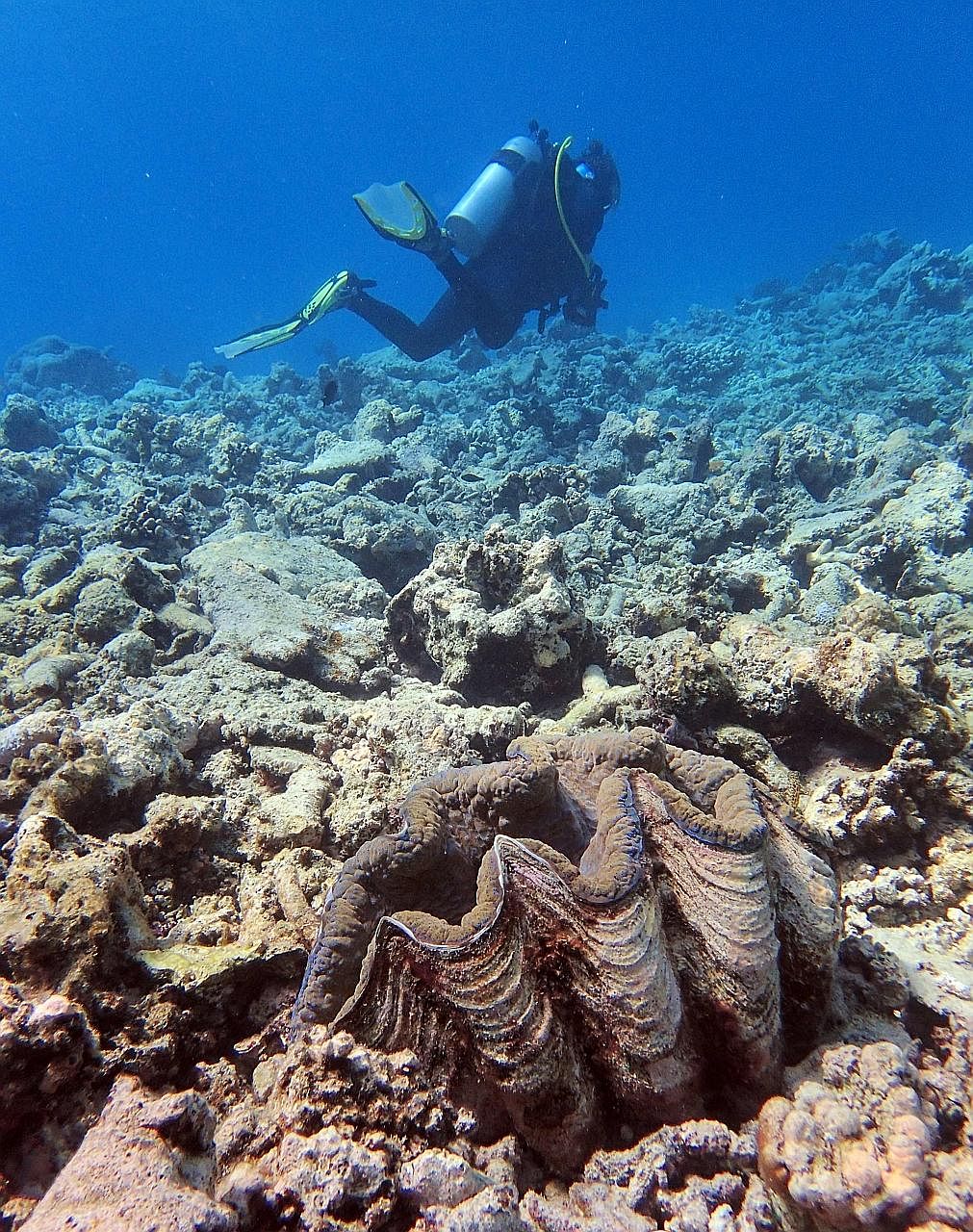WASHINGTON • Millions of people in South-east Asian countries such as Indonesia, Thailand and the Philippines are expected to bear the brunt of the damage to coral reefs due to rising temperatures.
Coral reefs around the globe already are facing unprecedented damage due to warmer and more acidic oceans. If carbon dioxide emissions continue to fuel the rise in temperature, the widespread loss of coral reefs by 2050 could have devastating consequences, according to new research published in the scientific journal PLOS.
To better understand where those losses would hit hardest, an international group of researchers mapped places where people most need reefs for their livelihoods, particularly for fishing and tourism, as well as for shoreline protection. They combined those maps with others showing where coral reefs are most under stress from warming seas and ocean acidification.
In many places, the loss of coral reefs would amount to an economic disaster, depriving fishermen of their main source of income, forcing people to find more expensive forms of protein and undermining the tourism industry.
"It means jobs for lots of people," said American environmental economist Linwood Pendleton, the study's lead author and an international chairman at the European Institute of Marine Studies.

In addition, many countries depend on coral reefs as a key barrier to guard against incoming storms and mitigate the damage done by surging seas. Without healthy reefs, "you lose what is essentially a moving, undersea sea wall", said Dr Pendleton. He estimated that about 62 million people live less than 10m above sea level and less than 3.2km from a coral reef.
"The waves just come into shore full force. That can cause loss of life. It can cause loss of property."
Some of the countries most dependent on coral reefs are also among the largest polluters.
"Some of the places that have the most to lose... are also among the biggest carbon emitters," Dr Pendleton said. "They really have it in their power to bring down the levels of carbon" they emit into the atmosphere.
Other countries that rely heavily on reefs, such as Fiji or Papua New Guinea, have relatively small carbon footprints. Still, they can take other measures - such as not overfishing and avoiding pollution - to prevent putting further pressure on already stressed reefs, said Dr Pendleton.
The researchers acknowledged that further study is needed to more fully understand what is happening to coral reefs around the globe and how that will affect humans. But it can be difficult, they noted. Many regions lack the capacity to do routine data collection, and scientists often have trouble getting permission to take samples in coastal areas or where maritime jurisdictions are disputed.
While coral reefs traditionally have been resilient in the face of environmental pressures, mounting evidence suggests their ability to bounce back is limited. Scientists reported that substantial swathes of the Great Barrier Reef - the world's largest coral reef system, off Australia - might have died in the wake of a historic coral-bleaching event.
"The mortality is really devastating," Dr Andrew Hoey, a senior research fellow with the ARC Centre of Excellence for Coral Reef Studies at James Cook University in Queensland, said last month as scientists worked to catalogue the damage.
Earlier this year, researchers discovered that parts of Florida's coral reef tract - the largest reef in the continental United States and the third-largest barrier reef ecosystem in the world - are dissolving, likely because of the effects of ocean acidification.
WASHINGTON POST
